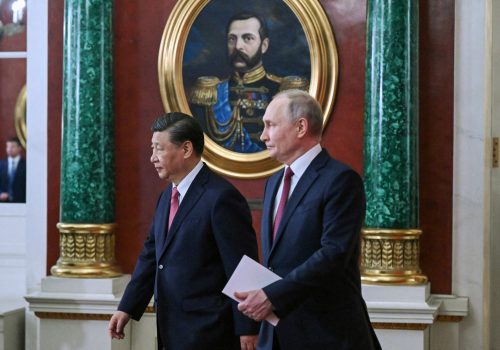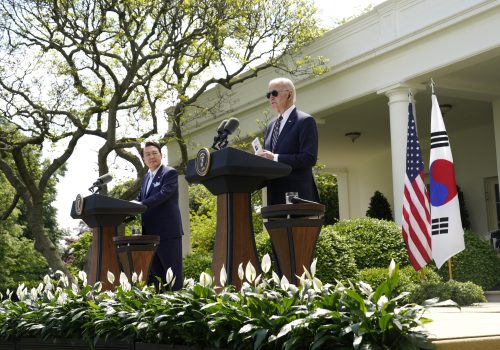All Content
Rachel Whitlark is a nonresident senior fellow in the Forward Defense practice of the Atlantic Council’s Scowcroft Center for Strategy and Security. She is also an associate professor in the Sam Nunn School of International Affairs at the Georgia Institute of Technology. Previously, she was a post-doctoral research fellow with the Project on Managing the Atom and International Security Program within the Belfer Center for Science and International Affairs at Harvard University’s Kennedy School of Government and a Stanton Nuclear Security fellow with the Massachusetts Institute of Technology’s Security Studies Program.
Whitlark’s research and teaching interests include strategies of counterproliferation, nuclear latency (the precursor technologies central to a state’s ability to acquire either nuclear weapons or civilian nuclear energy), the use of scenarios for methodological and pedagogical purposes, and the determinants of arms control negotiation success. Whitlark’s book, All Options on the Table: Leaders, Preventive War, and Nuclear Proliferation (Cornell University Press, 2021), investigates US and Israeli decision-making regarding the use of preventive military force as a counterproliferation strategy. Her work has been published in journals such as Security Studies, the Journal of Conflict Resolution, International Studies Quarterly, and International Studies Perspectives, as well as in policy outlets including the Washington Quarterly, Texas National Security Review, and the Bulletin of the Atomic Scientists. Her commentary has appeared in online fora including War On the Rocks, the Duck of Minerva, the Washington Post’s Monkey Cage, and The Week. Her research has been supported by the Stanton Foundation, the Defense Threat Reduction Agency, and the Israel Foundation, among others. She holds a PhD in political science from George Washington University, an MA in international policy studies from Stanford University, and a BA in international affairs, also from George Washington University.


